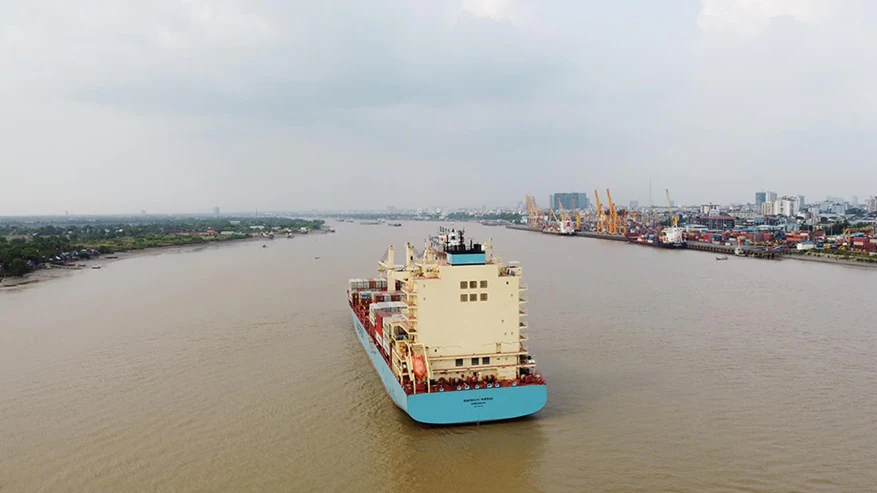
Continued presence in a complex environment : Maersk
COPENHAGEN : At A.P. Moller – Maersk (Maersk) there is a strong belief that global trade can be a powerful enabler for development when carried out in a responsible and sustainable way. With this in mind, the company has been carefully considering how to remain engaged in Myanmar while honoring its commitment to conduct business responsibly. After consulting a range of local and international stakeholders, speaking with rightsholders, and conducting heightened human rights due diligence, the company has now concluded that with the right measures, it is possible to continue operating in Myanmar and provide important added value to the country.
Maersk in Myanmar
Since the coup in February 2021, Maersk has been following the situation in the country closely, prioritising the health and wellbeing of its employees whilst continuing to support customers and contributing to the local economy.
We recognise that the situation in Myanmar is complex and have been continuously monitoring developments and expectations towards companies operating there. Our response to the conflict in Myanmar, was to immediately increase our due diligence activities, screening all business partners for links to sanctioned parties or to the military, and assessing potential or actual human rights impacts.
Niseth Boerrigter
Country Manager for Maersk Myanmar
Maersk has provided customers container transport and logistics services in Myanmar since 2013, facilitating a sizeable share of the trade in Myanmar across Ocean, Air freight, Consolidation services and landside activities. With over 300 local employees employed in Yangon, and relying on local supply chains, the company is touching the lives of at least 12,500 people in Myanmar.
Deepening the due diligence
Maersk is committed to conducting business responsibly, supported by its company values and Code of Conduct and as outlined in its Human Rights Policy Statement.
In 2023, with the support of external experts, Maersk conducted a heightened human rights due diligence assessment across its value chain in Myanmar. The assessment included a conflict risk analysis, an assessment of human rights risks, extensive rightsholder and stakeholder engagement, and an assessment of how Maersk’s management systems are preventing or mitigating such risks. The overall conclusion of this assessment was that it is possible for Maersk to operate responsibly in Myanmar, with the support of robust management systems in place.
“It has been key for us to have this external assessment confirm that our internal structures are strong enough to ensure compliant business activities in a complex environment like Myanmar. It strengthens our belief that we can remain committed to the thousands of local people our operations touch in this country,” explains Niseth Boerrigter.
The assessment identified a handful of areas for improvement to address risks that are mainly in the supply chain regarding inland logistics and ports, which Maersk is now working on to address.
Also, the assessment gave recommendations to further strengthen existing management processes applicable to the company’s warehouse operations in the country. Notably, human rights risks with seafarers and office employees were assessed as low due to strong management processes in place. As part of the work, several actions have already been initiated, including trainings for Maersk employees as well as high-risk suppliers.
To address the identified gaps, we have defined action plans for improvement in several areas, focusing on increased training and check-ins with our frontline workers, engaging more regularly with our suppliers in trucking and terminals to support continued improvements in safety and working conditions, and adapting management systems for early detection of potential issues.
Niseth Boerrigter
Country Manager for Maersk Myanmar

